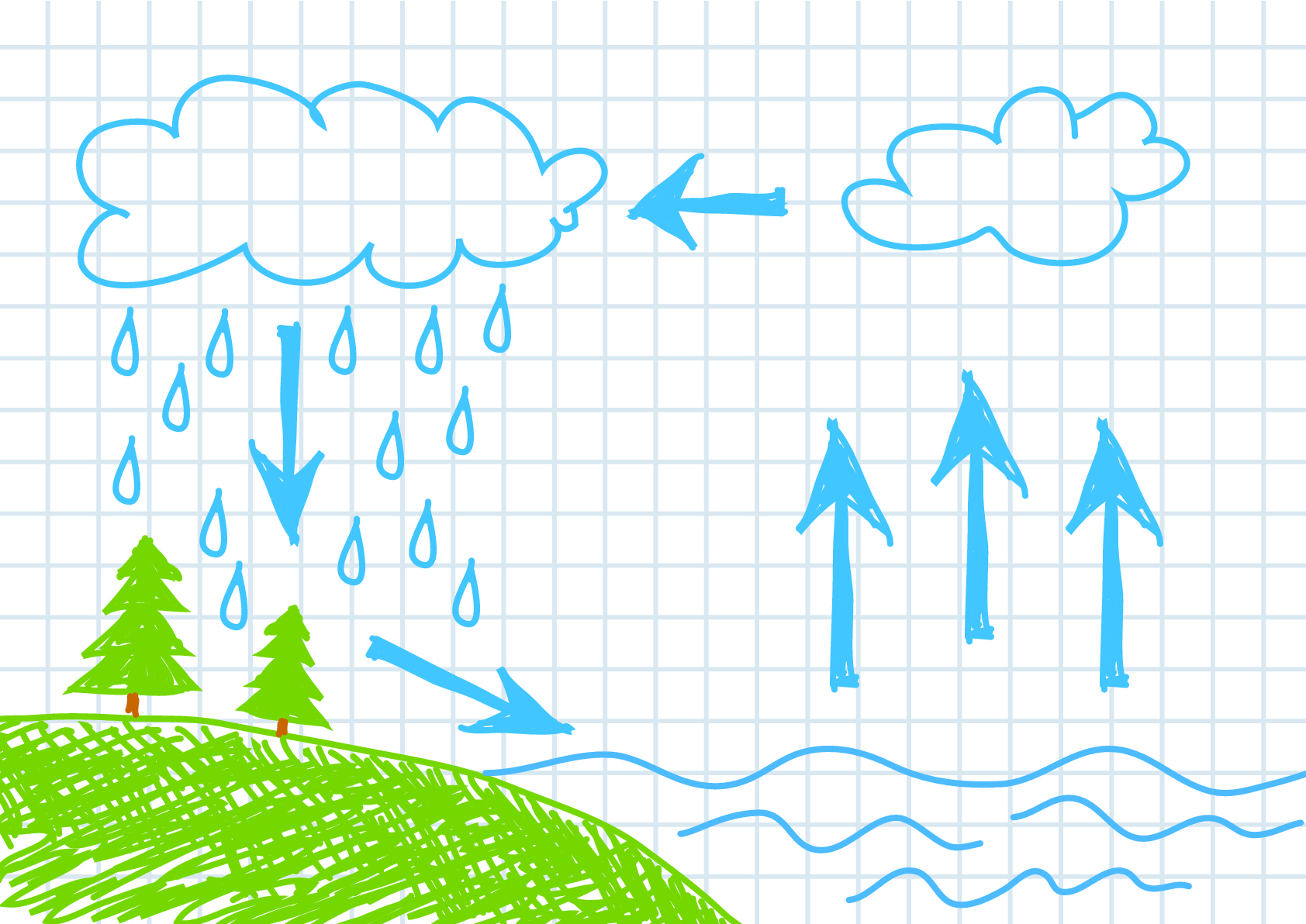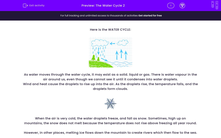What do you know about the water cycle?
Have a think - what if water stopped cycling through the environment. What sort of problems might that cause?
First of all, let's have a look at a diagram of the water cycle:

Can you see water moving up from the sea (and indeed, over the planet's surface)? That's evaporation, caused by warmth and wind.
Water particles are changing from being in a liquid state to being in a gaseous state.
Can you see that the water vapour is coming together as water droplets, as they rise and cool down, to form clouds?
That's condensation, where the water particles come out of their gaseous state to form tiny drops of water (like in fog).
Can you see rain falling on the land? That's called precipitation.
It's where those droplets of water in the cloud have joined together until they're heavy enough to fall - rain, snow, hail, etc. are all forms of precipitation.
So, can you see that as water moves through the water cycle, it may exist as a solid, liquid or gas?
That means that there is water vapour in the air around us, even though we cannot see it until it condenses into water droplets.

When the air is very cold, the water droplets freeze, and fall as snow.
Sometimes, high up on mountains, the snow does not melt because the temperature does not rise above freezing all year round.

In other places, melting ice flows down the mountains to create rivers, which then flow to the sea.
.jpg)
So, going back to that question at the start: what if the water cycle broke down? Since life on planet Earth depends on water, that would be catastrophic. Can you think of examples of how life would be impacted by that?
Anyway, use this activity to test yourself on what you understand about the water cycle.
Ready? Let's get started!







